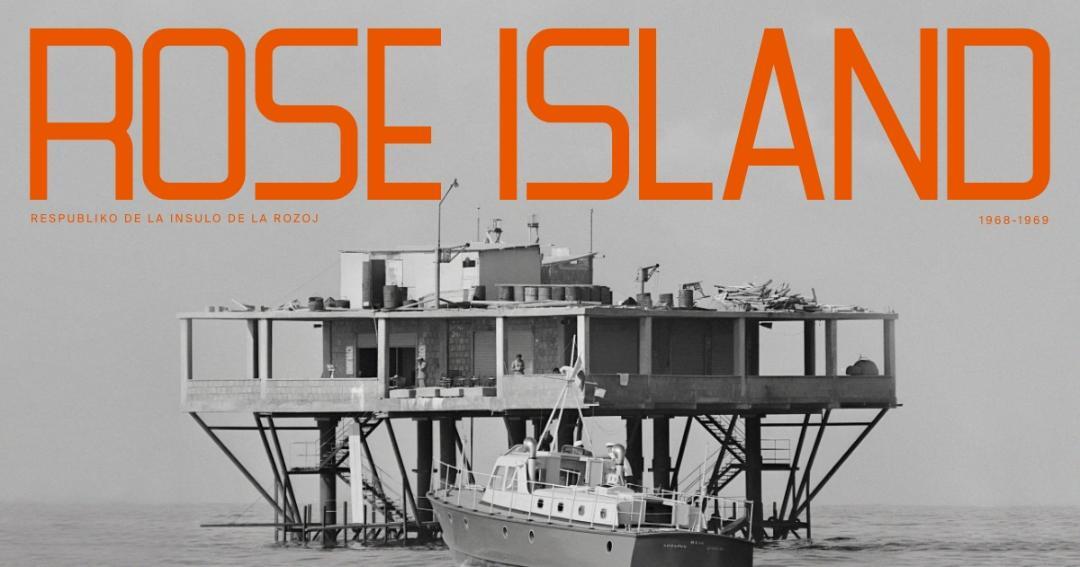
Italian Engineer Built a Country at Sea, Reshaped Ocean Law
In the summer of 1968, a charismatic Italian engineer named Giorgio Rosa embarked on an extraordinary adventure. With a passion for innovation and a thirst for freedom, Rosa designed and built a tiny nation at sea, which he called the Republic of Rose Island. This floating micronation, located approximately 1,000 feet off the coast of Rimini, Italy, was a bold experiment in self-governance and a challenge to traditional authority. However, what started as a utopian dream ultimately forced governments to reexamine and tighten maritime laws, forever changing how nations define control over the seas.
The Republic of Rose Island was a remarkable feat of engineering, consisting of a 4,000-square-foot platform supported by nine steel pillars. The structure was equipped with a range of amenities, including a restaurant, bar, nightclub, and even a post office. Rosa’s vision was to create a haven for artists, intellectuals, and free thinkers, where they could live and work without the burdens of traditional authority. The micronation was designed to be a symbol of freedom and independence, a place where people could escape the constraints of conventional society and live life on their own terms.
As news of the Republic of Rose Island spread, it attracted a diverse community of individuals from all over the world. The micronation became a popular destination for tourists, who were drawn to its unique charm and the promise of a libertarian lifestyle. However, not everyone was pleased with Rosa’s creation. The Italian government, in particular, viewed the Republic of Rose Island as a threat to its authority and a challenge to its territorial claims.
The Italian authorities argued that the micronation was a violation of the country’s sovereignty and a potential haven for tax evaders and other nefarious activities. In response, Rosa claimed that the Republic of Rose Island was a sovereign state, beyond the jurisdiction of any national government. He argued that the micronation was located in international waters, and therefore, it was not subject to the laws of any particular country.
The dispute between Rosa and the Italian government eventually led to a dramatic confrontation. In February 1969, the Italian authorities sent a team of engineers to the Republic of Rose Island, where they proceeded to demolish the structure. The micronation was destroyed, and Rosa was forced to abandon his dream of a self-governing community at sea.
Although the Republic of Rose Island was short-lived, its legacy has had a lasting impact on the development of ocean law. The creation of the micronation highlighted the need for clearer guidelines and regulations governing the use of the seas. In response to Rosa’s experiment, governments around the world began to reexamine their maritime laws and to establish more precise definitions of territorial waters and exclusive economic zones.
The United Nations Convention on the Law of the Sea (UNCLOS), which was adopted in 1982, is a direct result of this process. UNCLOS provides a comprehensive framework for the use of the world’s oceans, including rules governing navigation, fishing, and the exploitation of natural resources. The convention also establishes clear guidelines for the definition of territorial waters and the rights of coastal states to regulate activities within their exclusive economic zones.
In addition to its impact on ocean law, the Republic of Rose Island has also inspired a new generation of entrepreneurs and innovators. Today, there are numerous companies and organizations working on the development of floating cities and other types of offshore infrastructure. These projects have the potential to provide new opportunities for sustainable development, environmental conservation, and social innovation.
In conclusion, the story of the Republic of Rose Island is a fascinating example of how a bold experiment in self-governance can challenge traditional authority and inspire change. Giorgio Rosa’s vision of a libertarian community at sea may have been short-lived, but its legacy continues to shape our understanding of ocean law and the use of the seas. As we look to the future, it is essential to remember the importance of innovation and experimentation in driving progress and creating new opportunities for human flourishing.
For more information on the Republic of Rose Island and its impact on ocean law, you can watch a documentary on the subject at https://youtube.com/shorts/i35–kFRiPs.
News Source: https://youtube.com/shorts/i35–kFRiPs






